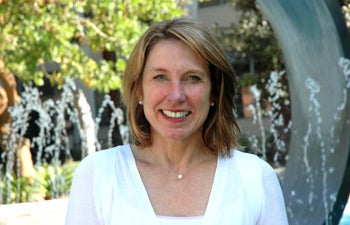While you may think you know why you vote on election day, think again.
There are, after all, a host of variables that may lead you to battle extra early morning traffic, arrive late to work, or rush the kids to school without their lunchboxes — all on your way to the nearest poll site.
Among the reasons people vote — Republicans, Democrats and independents alike — may be a strong preference for a candidate or party; a belief that voting is a duty; a concern about the election outcome; an interest in politics; or a belief that every vote counts.
Wendy Wood, Provost Professor of Psychology and Business in USC College, along with two colleagues at Duke University, Professor of Political Science John H. Aldrich and graduate student Jacob M. Montgomery, recently demonstrated that voters also turn out as a matter of habit.
“Political scientists are great at predicting election outcomes and attitudes toward political candidates for office,” Wood said. “The information from our study will assist them in predicting who will vote.”

Wendy Wood, USC College Provost Professor of Psychology and Business
Wood said that if you have formed a habit of voting, then you are likely to continue to vote regardless of your partisanship, liking for candidate or party, or even whether you think it’s important to be a good citizen. “For 40 percent of voters, previous voting was the strongest indicator of future voting and that’s significant,” she said.
Since we are creatures of habit, the one factor that may disrupt our voting habits is not so surprising. The study finds that people who move any great distance are less likely to vote in a new environment; once they are out of their usual context, their stable voting habit wavers.
“So the question is how to get people to the polls and then keep them going to the polls and to perpetuate the voting habit,” Wood said. “Habits are repetitive behavior, some good and some bad. Voting is obviously a good one.”
Wood and her colleagues replicated these voting patterns in the lab, by e-mailing short polls to students. “Once they acquired the habit of responding to our polling,” Wood explained, “they continued even after the study was over. And they continued to respond even on issues that were not important to them.”
So when you read political headlines in newspapers, see long lines at the polls, glance at fliers, hear neighborhood discussions and see proudly displayed “I Voted” pins, you may or may not to head to the polls. It may depend on whether or not you have voted before.
The National Science Foundation-sponsored research study used data from a cross-section of the American National Election Study. Data analyzed was from the validated voting records of 16,000 people, across all political parties and age groups, who had voted in any of four presidential elections (’64, ’72, ’76, ’80) or any of four congressional elections (’58, ’66, ’74 and ’94).
The paper has been accepted for publication in the Political Behavior.